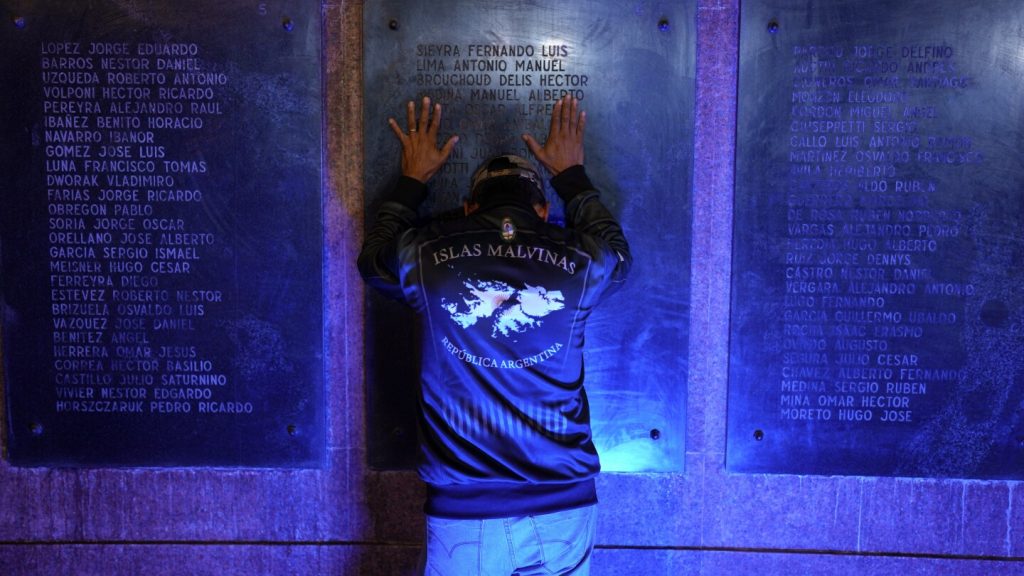Argentinian President Javier Milei is facing criticism for his approach to the Falkland Islands, known as the Malvinas in Argentina. Despite the country’s longstanding claim to the islands, which are controlled by Britain, Milei has shown interest in boosting trade with the British rather than focusing on territorial disputes. His decision to cancel a grand Malvinas Day parade and deliver a speech aimed at domestic political opponents has left some feeling uncertain about his stance on the issue, including war veterans who fought in the conflict.
Milei’s warm praise for the nation’s soldiers at a recent memorial event did not resonate with all veterans, with some expressing confusion about his position on the Malvinas. The conflict between Argentina and Britain over the islands dates back to the 19th century, with both countries claiming historical rights to the territory. The brief war in 1982 resulted in casualties on both sides, further fueling nationalist sentiments in Argentina. Despite the significance of Malvinas Day as a patriotic holiday, Milei made no mention of the UK in his speech, instead promising a vague “roadmap for the return of Malvinas to Argentine hands”.
Critics of Milei have pointed to his past comments praising former British Prime Minister Margaret Thatcher and his friendly interactions with British diplomats as signs of a lack of commitment to Argentina’s territorial claims. While Milei has emphasized the need for a diplomatic solution respecting the will of the island’s residents, his opponents accuse him of bowing to the British empire and prioritizing trade interests over national sovereignty. The political polarization around the Malvinas issue has become a point of contention in Argentine politics, with Milei’s supporters and detractors clashing over the president’s handling of the situation.
Some veterans have expressed dismay at the politicization of Malvinas Day, a traditionally solemn occasion to honor the fallen soldiers and remember the events of the war. As Milei’s supporters interrupted a wreath-laying ceremony with political slogans, older veterans like Daniel Pereira criticized the president for turning a day of remembrance into a platform for propaganda. Others, like 74-year-old Carlos Milock, preferred to focus on honoring the memory of those who died in the conflict and expressing their ongoing desire to see the Malvinas returned to Argentine control.
The controversy surrounding Milei’s approach to the Malvinas reflects deeper divisions within Argentine society over the country’s national identity and historical grievances. While some view the issue as a matter of patriotic duty and steadfast resistance against British imperialism, others prioritize economic interests and diplomatic relations in their approach to the disputed territory. As Argentina continues to grapple with the legacy of the Falklands War and its ongoing implications for national unity, the debate over the Malvinas remains a sensitive and divisive topic in the country’s political landscape.


